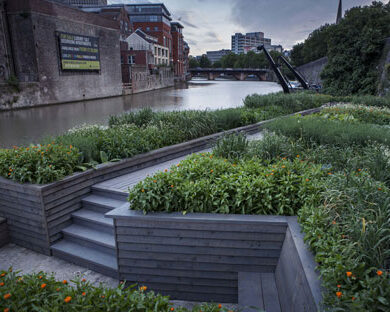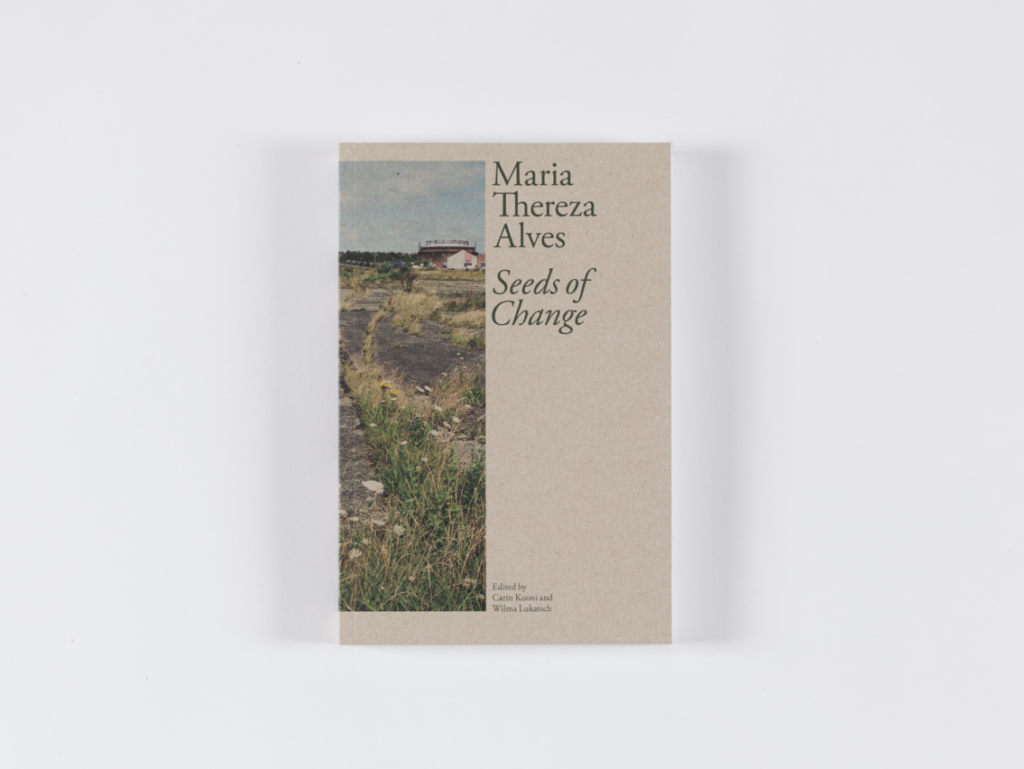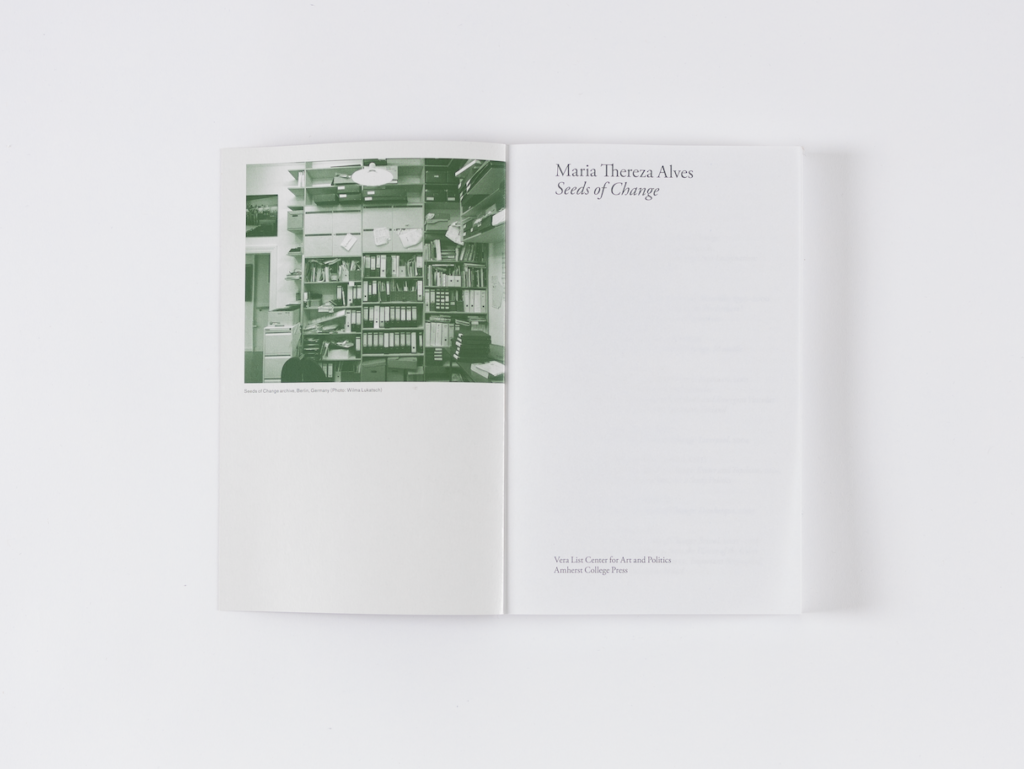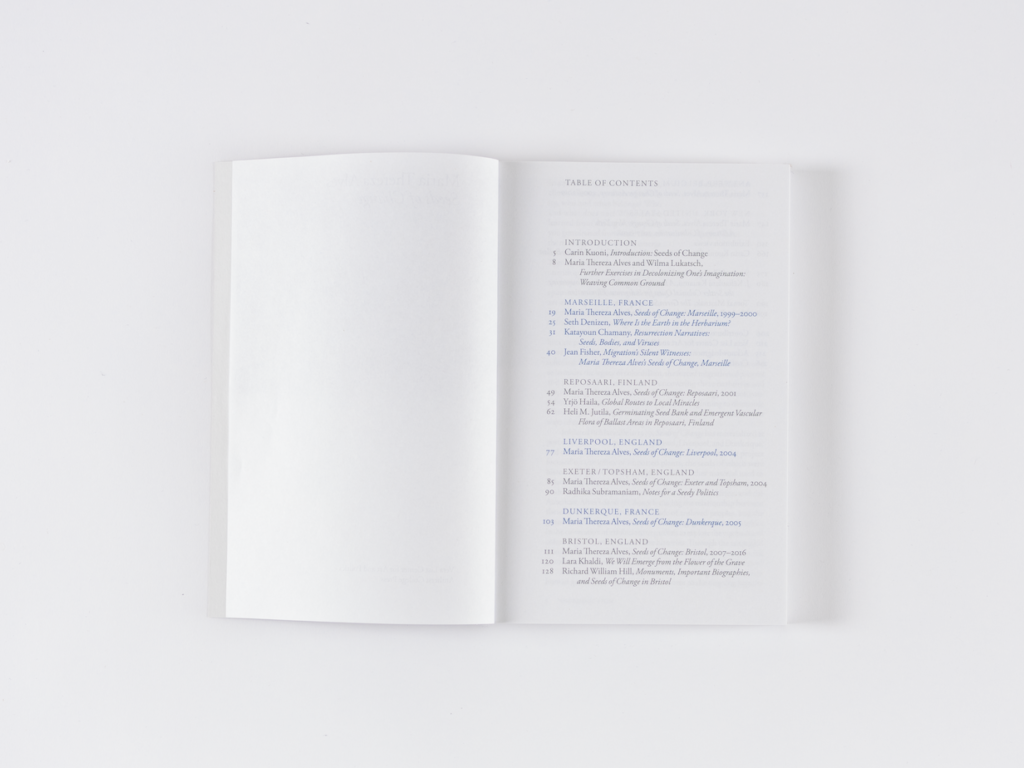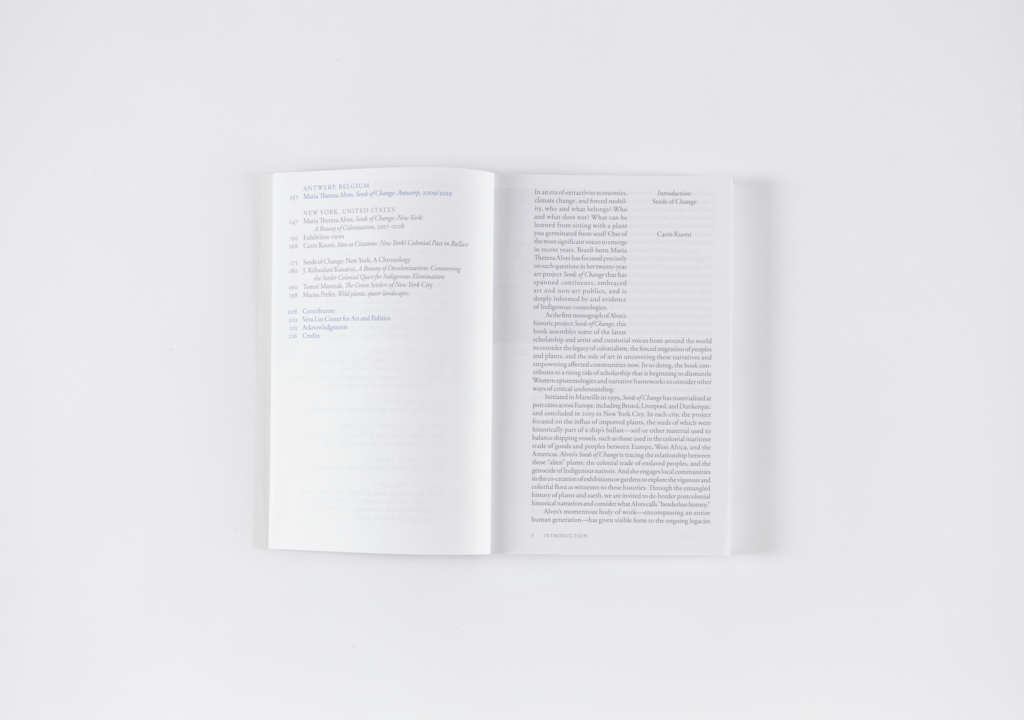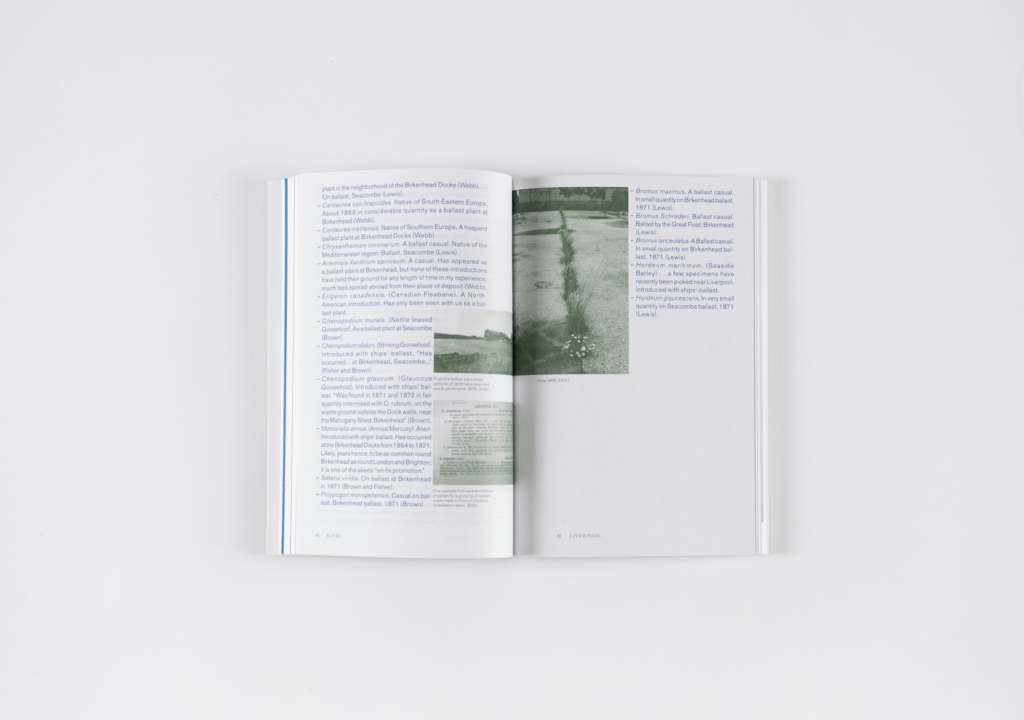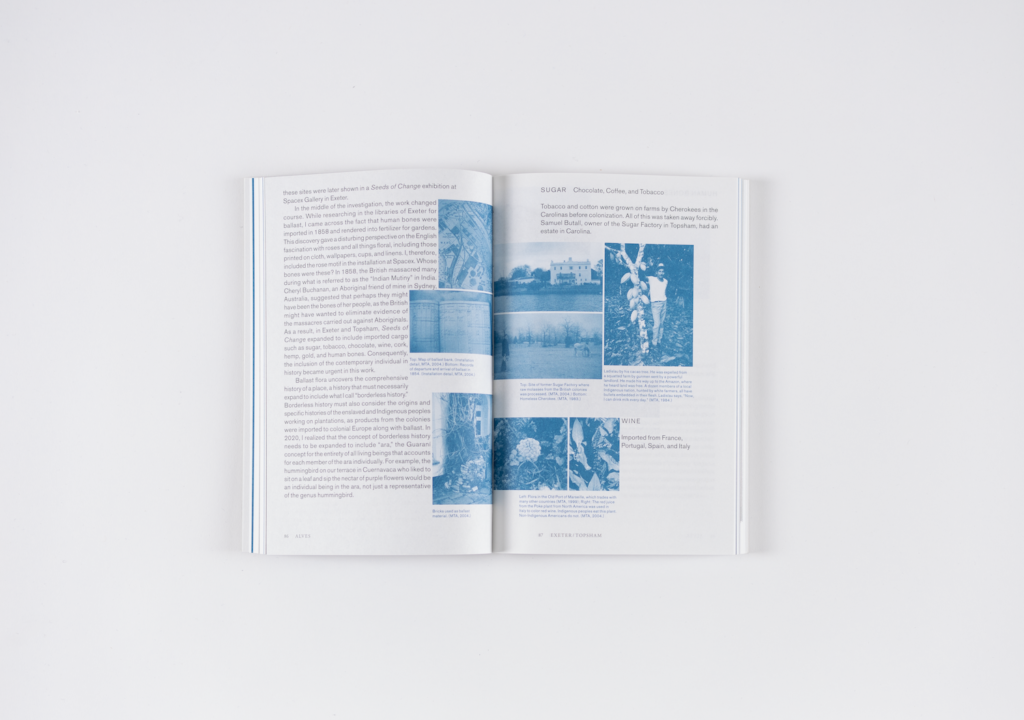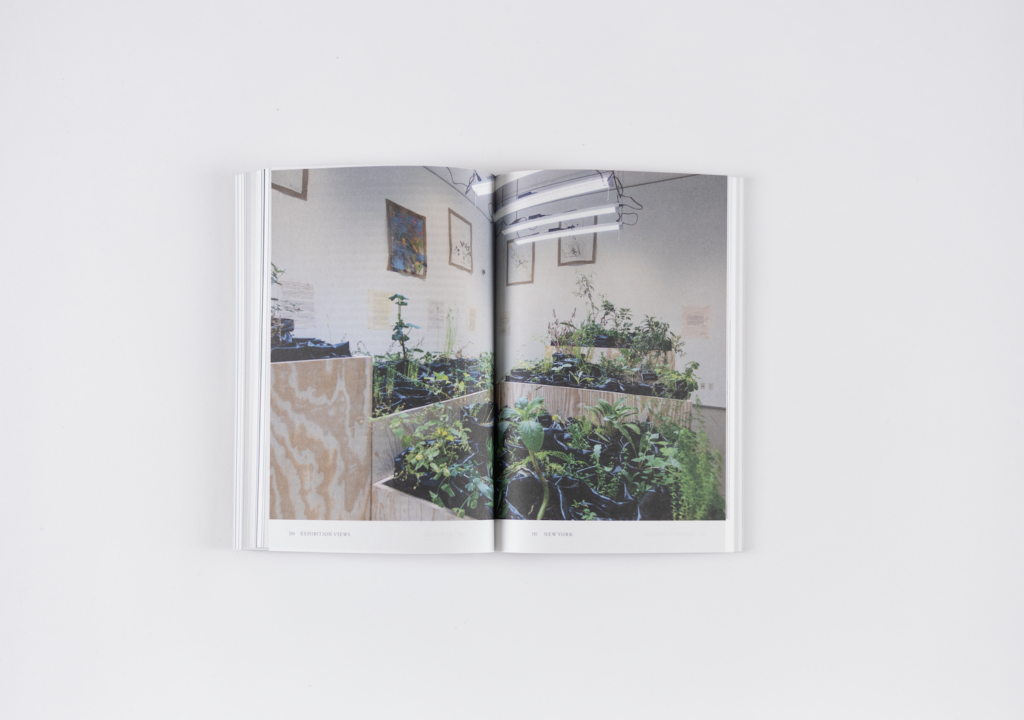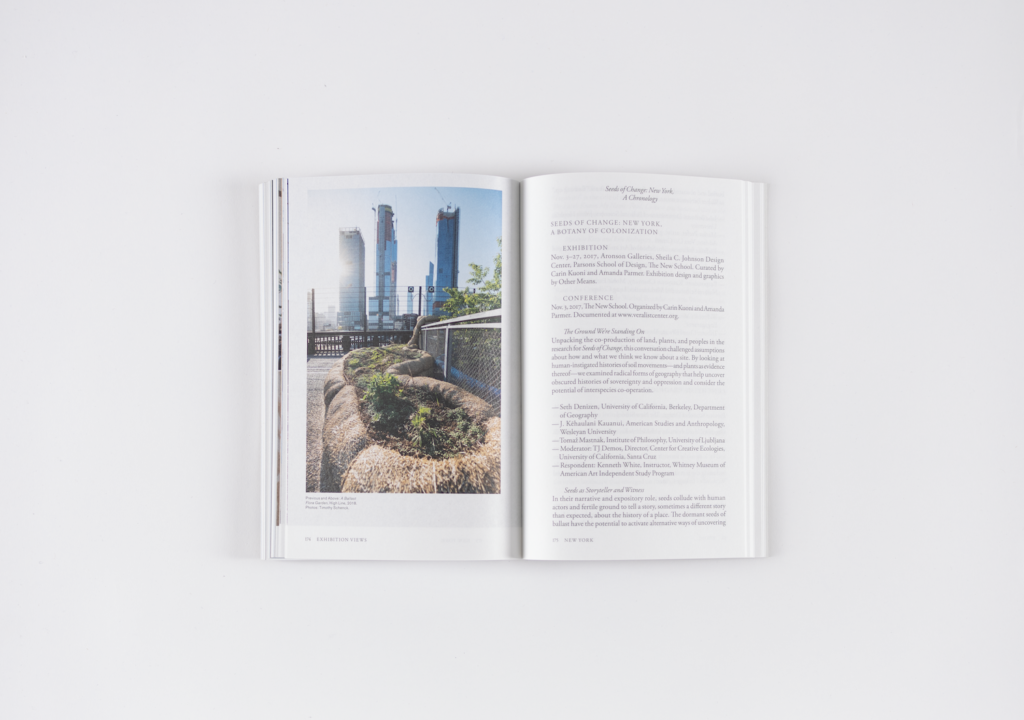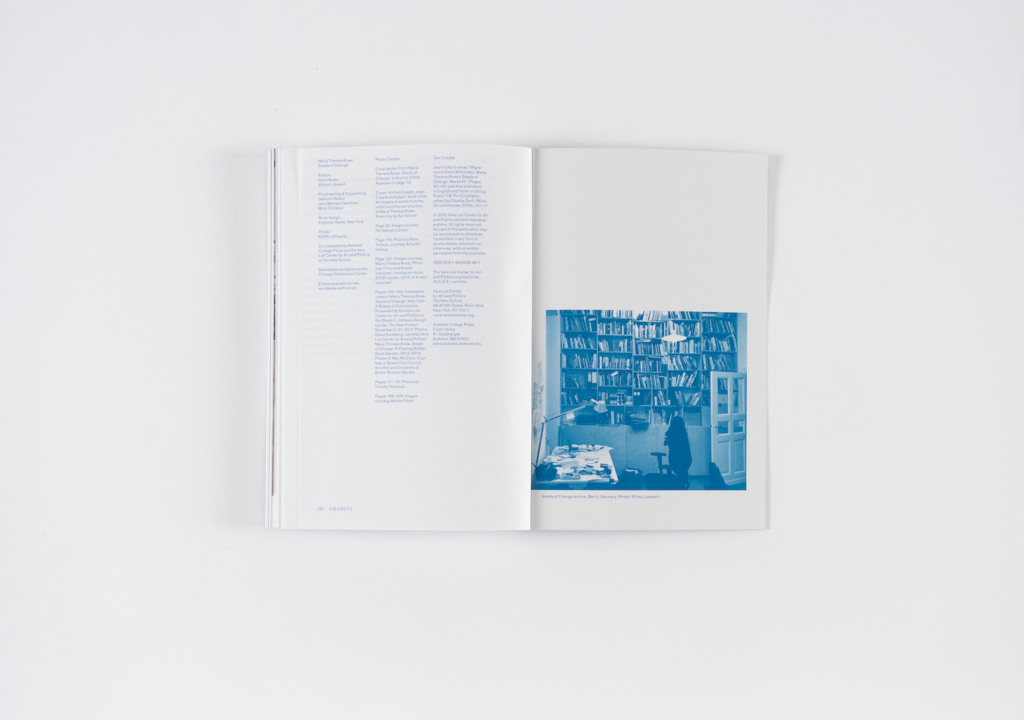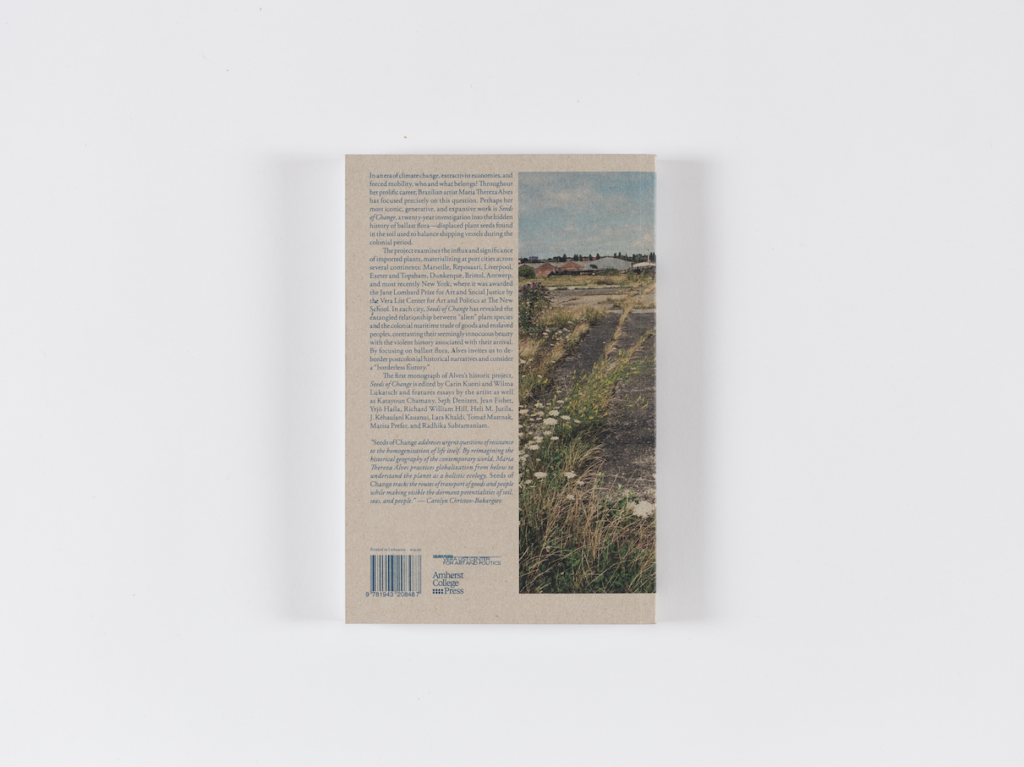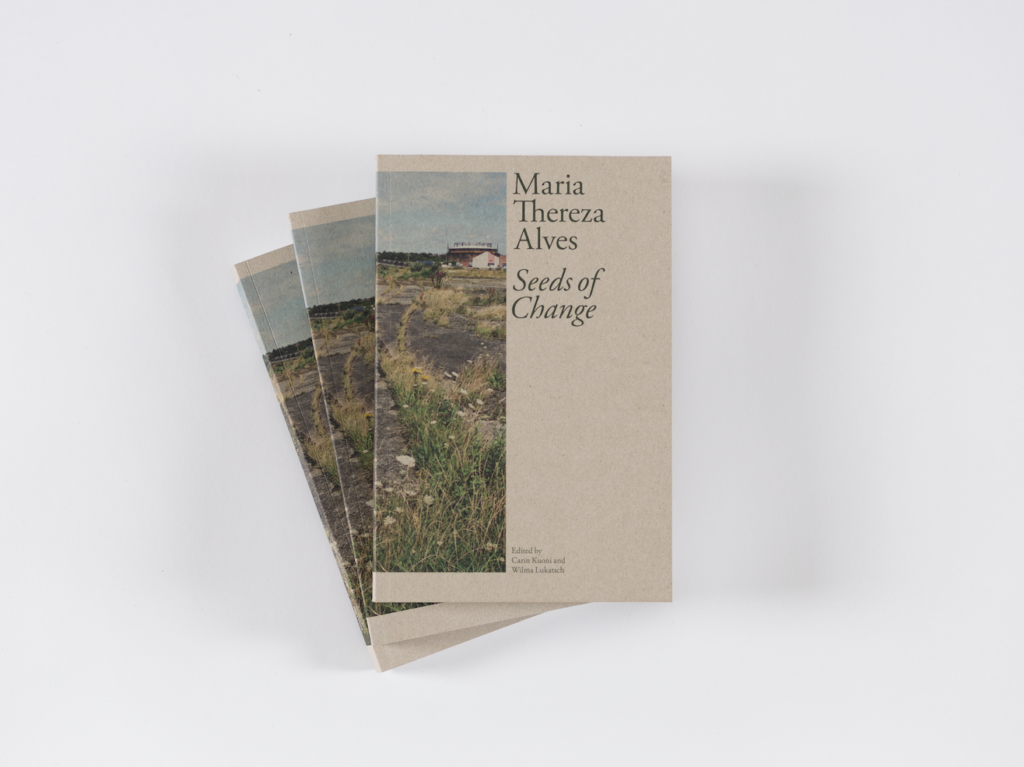Book, e-book
Maria Thereza Alves: Seeds of Change
In an era of climate change, extractivist economies, and forced mobility, who and what belongs? Throughout her prolific career, Brazilian artist Maria Thereza Alves has focused precisely on this question. Perhaps her most iconic, generative, and expansive work is Seeds of Change, a twenty-year investigation into the hidden history of ballast flora—displaced plant seeds found in the soil used to balance shipping vessels during the colonial period.
The project examines the influx and significance of imported plants, materializing at port cities across several continents: Marseille, Reposaari, Liverpool, Exeter and Topsham, Dunkerque, Bristol, Antwerp, and most recently New York, where it was awarded the Jane Lombard Prize for Art and Social Justice by the Vera List Center for Art and Politics at The New School. In each city, Seeds of Change has revealed the entangled relationship between “alien” species and the colonial maritime trade of goods and enslaved peoples, contrasting their seemingly innocuous beauty with the violent history associated with their arrival. By focusing on ballast flora, Alves invites us to de-border postcolonial historical narratives and consider a “borderless history.”
The first monograph of Alves’s historic project, Seeds of Change is edited by Carin Kuoni and Wilma Lukatsch and features essays by the artist as well as Katayoun Chamany, Seth Denizen, Jean Fisher, Yrjö Haila, Richard William Hill, Heli M. Jutila, J. Kēhaulani Kauanui, Lara Khaldi, Tomaž Mastnak, Marisa Prefer, and Radhika Subramaniam.
“Seeds of Change addresses urgent questions of resistance to the homogenization of life itself. By reimagining the historical geography of the contemporary world, Maria Thereza Alves practices globalization from below to understand the planet as a holistic ecology. Seeds of Change tracks the routes of transport of goods and people while making visible the dormant potentialities of soil, seas, and people.”— Carolyn Christov-Bakargiev, Director, Castello di Rivoli Museum of Contemporary Art, Torino
Related
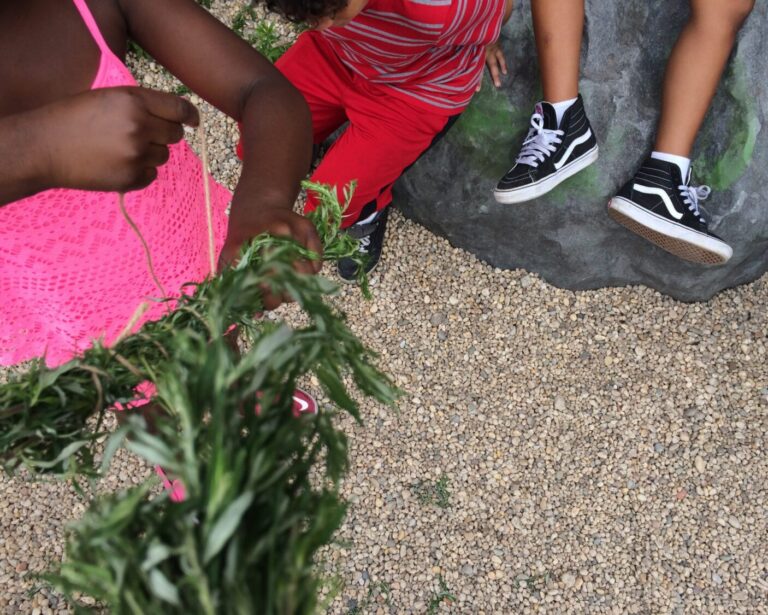
Photo Essay
Wild plants, queer landscapes
Marisa Prefer
VLC Prize Announcement
2016-2018 Prize Recipient: Maria Thereza Alves
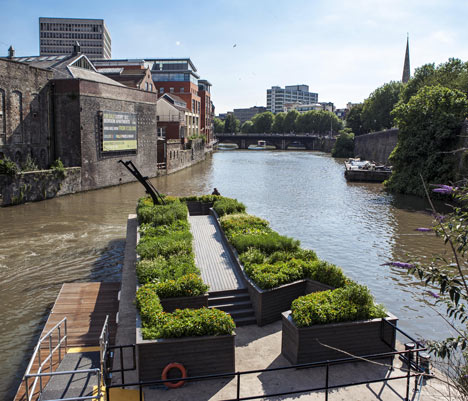
Nov 1, 2016
Panel, Prize Ceremony
Prize Ceremony and Keynote Conversation with Maria Thereza Alves and Ruth Wilson Gilmore
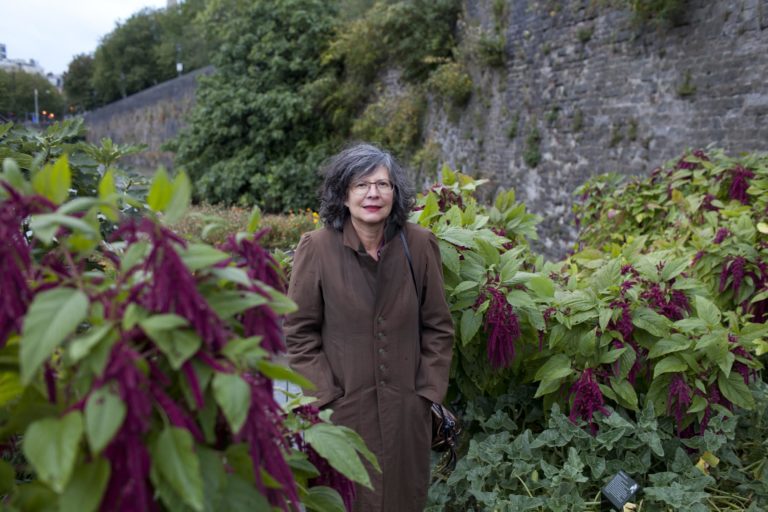
Nov 3, 2017
Press
Secret Gardens: Rahel Aima on Maria Thereza Alves’s Seeds of Change
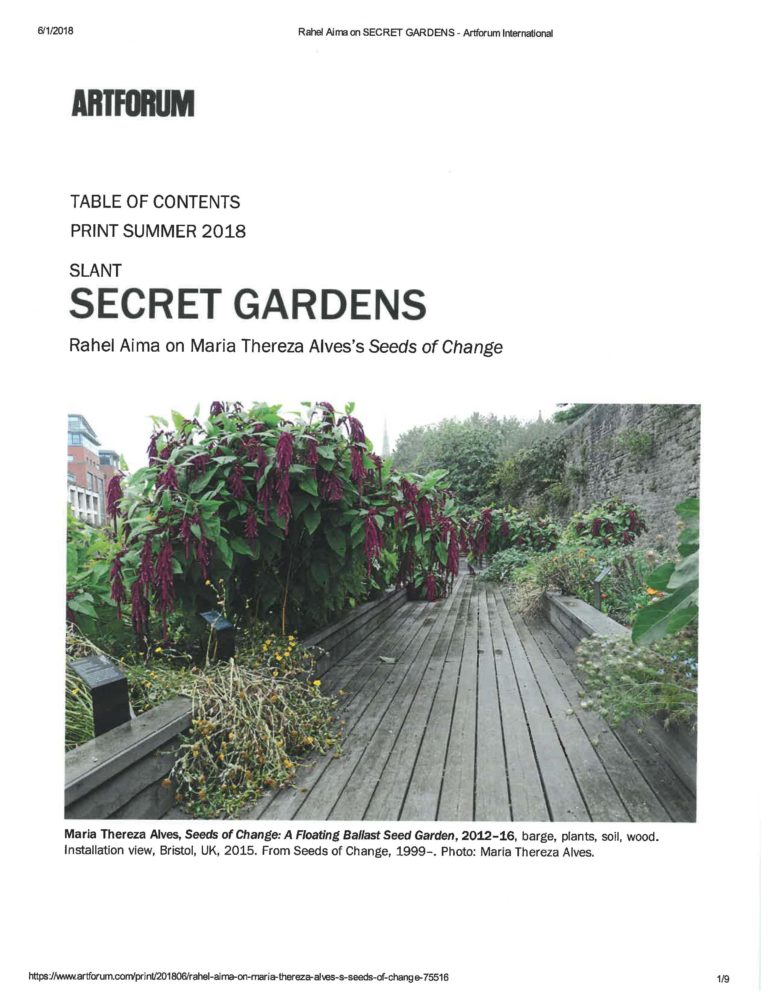
Conference, Seminar
Indigenous New York, Curatorially Speaking
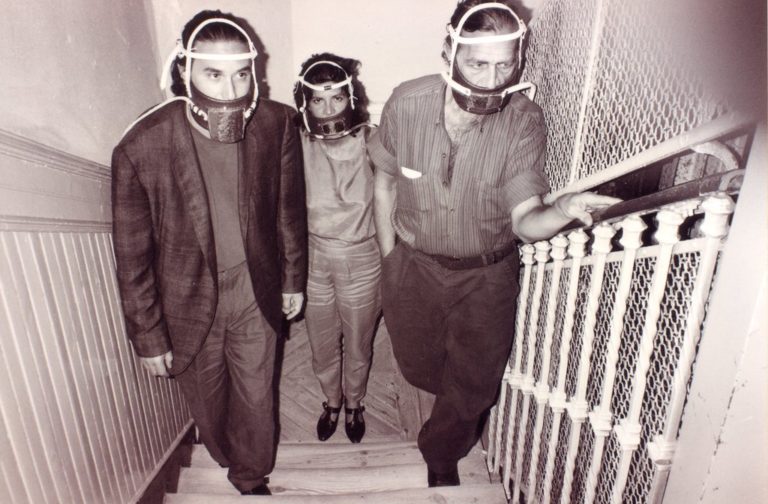
Oct 15, 2016
Talk
Seeds of Change Lunchtime Reading: Alex Smith and M. Téllez from Metropolarity
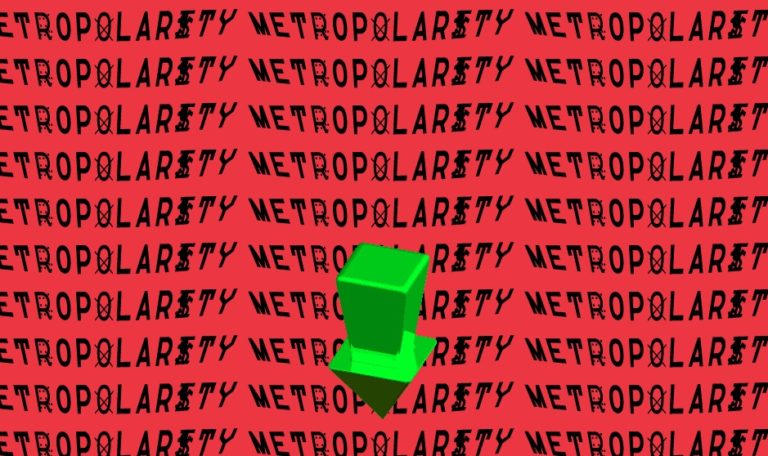
Nov 21, 2017
Talk
Seeds of Change Lunchtime Reading: Jennifer Kabat
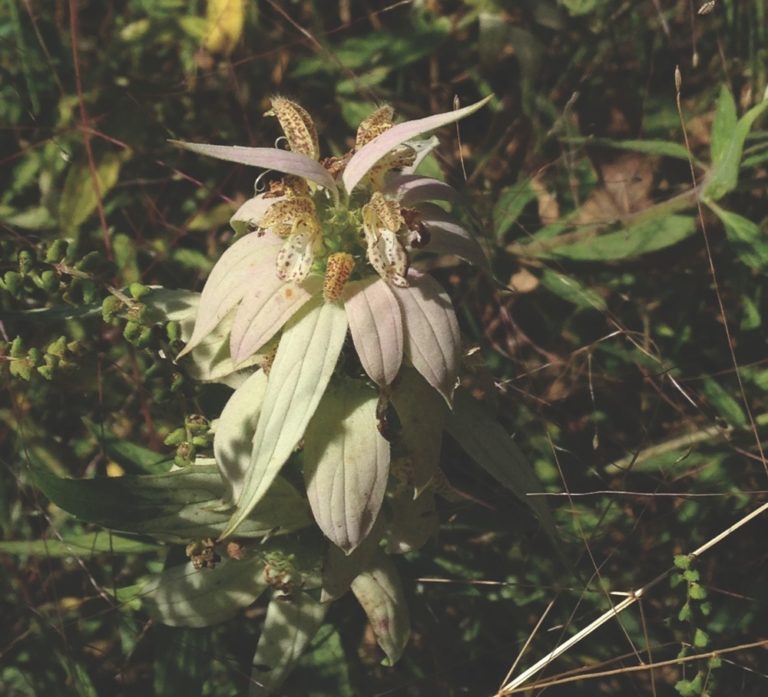
Nov 16, 2017
Talk
Seeds of Change Lunchtime Reading: Melanie Kress and Eric Rodriguez, High Line
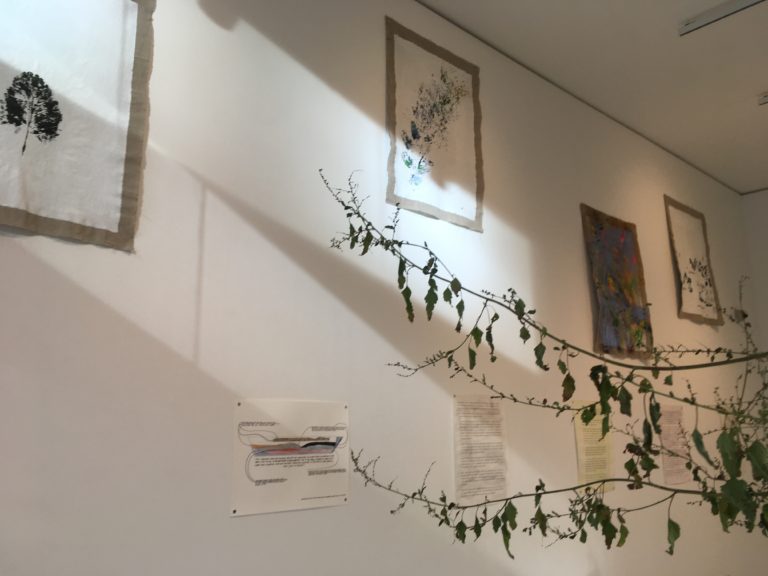
Nov 14, 2017
Talk
Seeds of Change Lunchtime Reading: Patricia Klindienst
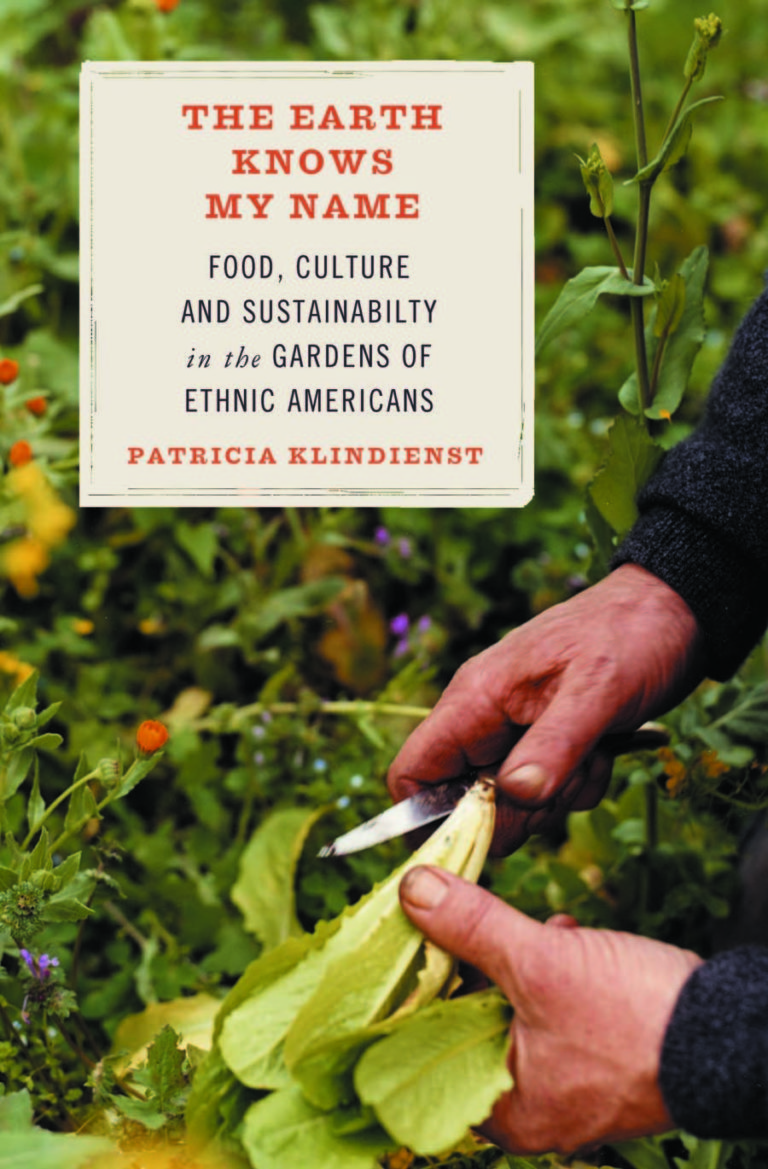
Nov 9, 2017
Talk
Seeds of Change Lunchtime Reading: Wendy S. Walters

Nov 7, 2017
Conference, Conversation
The Vera List Center Prize for Art and Politics 2016-2018: International Biennial Prize Conference, Day I
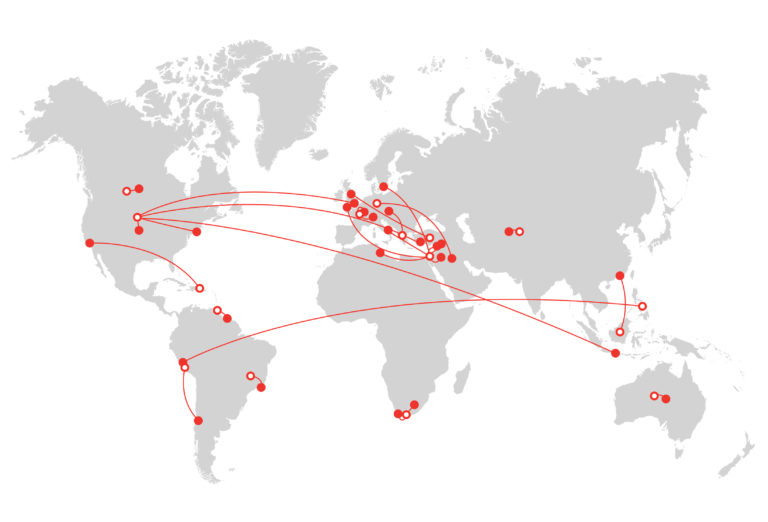
Nov 3, 2017
Conference, Conversation
The Vera List Center Prize for Art and Politics 2016-2018: International Biennial Prize Conference, Day II

Nov 4, 2017
Walk
WILD PLANTS, QUEER LANDSCAPES: SEEDborder CrossWALK in Crown Heights
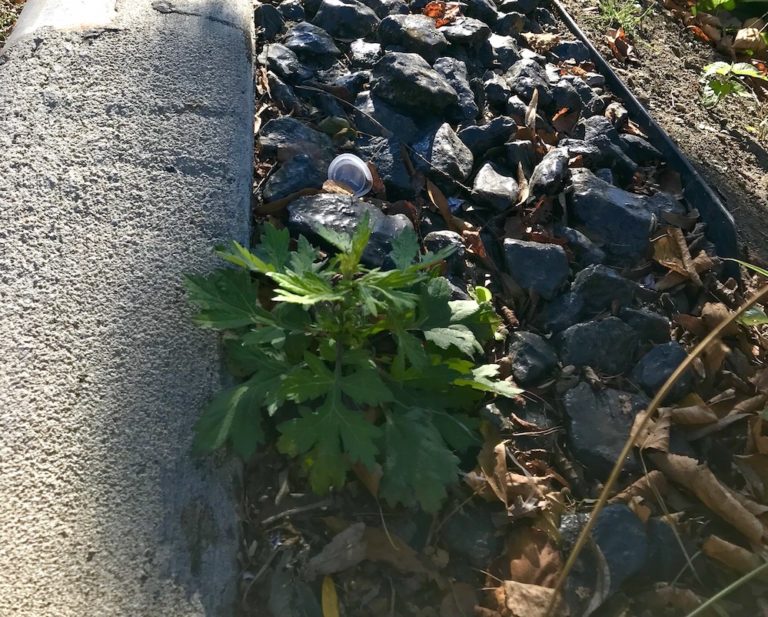
Nov 19, 2017
Walk
WILD PLANTS, QUEER LANDSCAPES; A ballast weed walk at Atlantic Basin / Red Hook
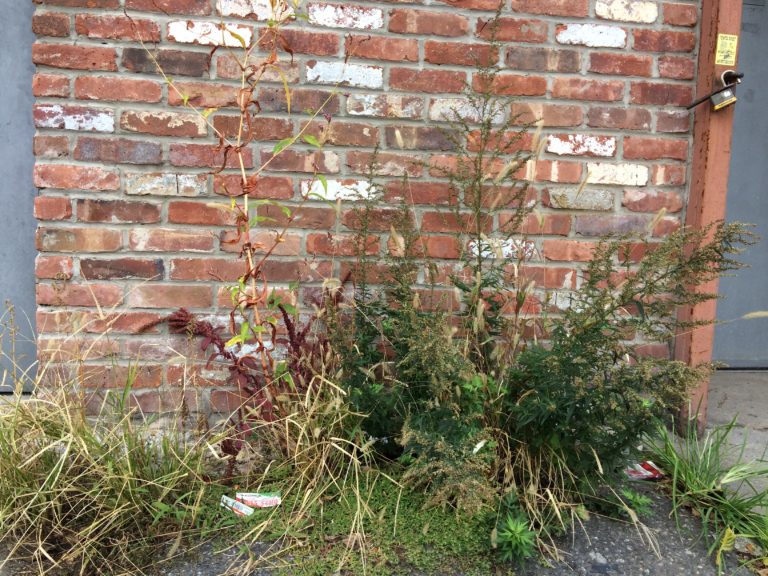
Nov 12, 2017
Walk
WILD PLANTS, QUEER LANDSCAPES; A ballast weed walk at the Western Railyards

Nov 5, 2017
Exhibition
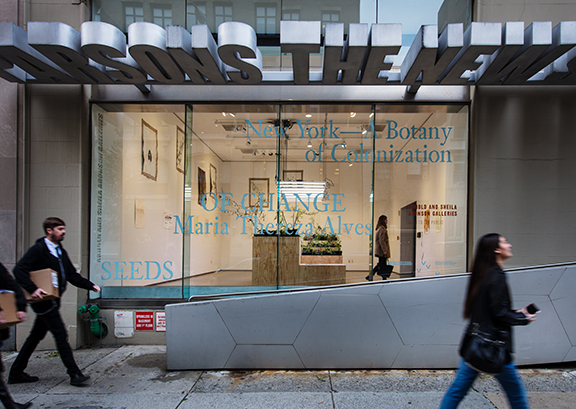
Maria Thereza Alves, Seeds of Change: New York—A Botany of Colonization
Nov 3–Nov 27, 2017
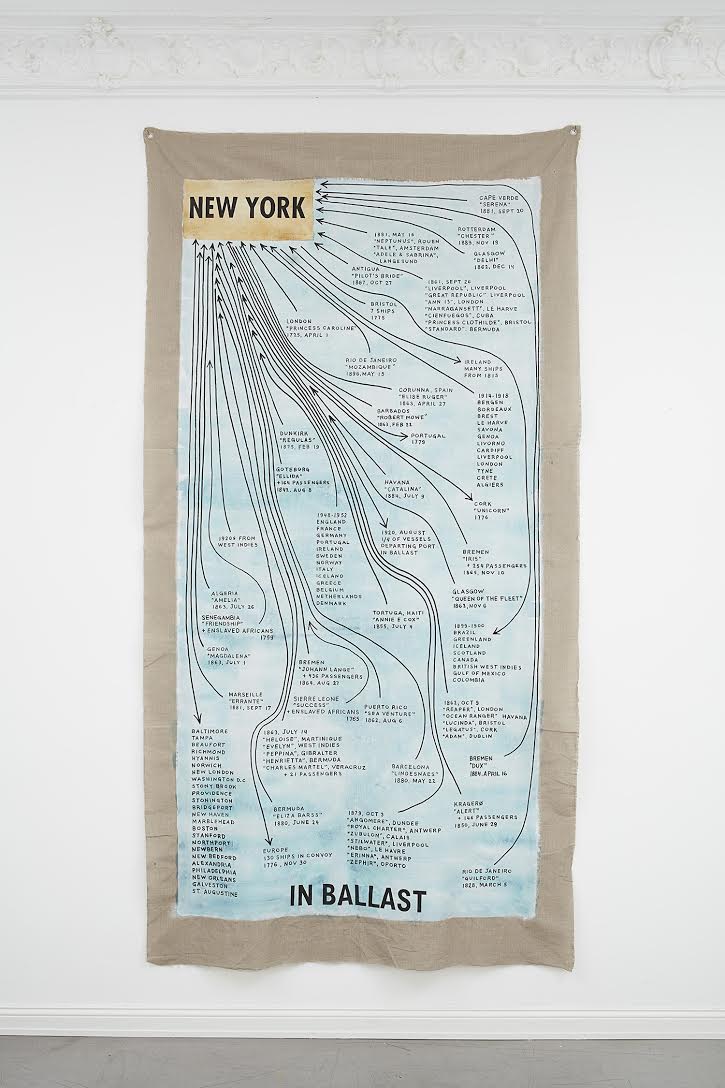
Essay
Sites as Citations of New York’s Colonial Past in Ballast
Carin Kuoni and Amanda Parmer
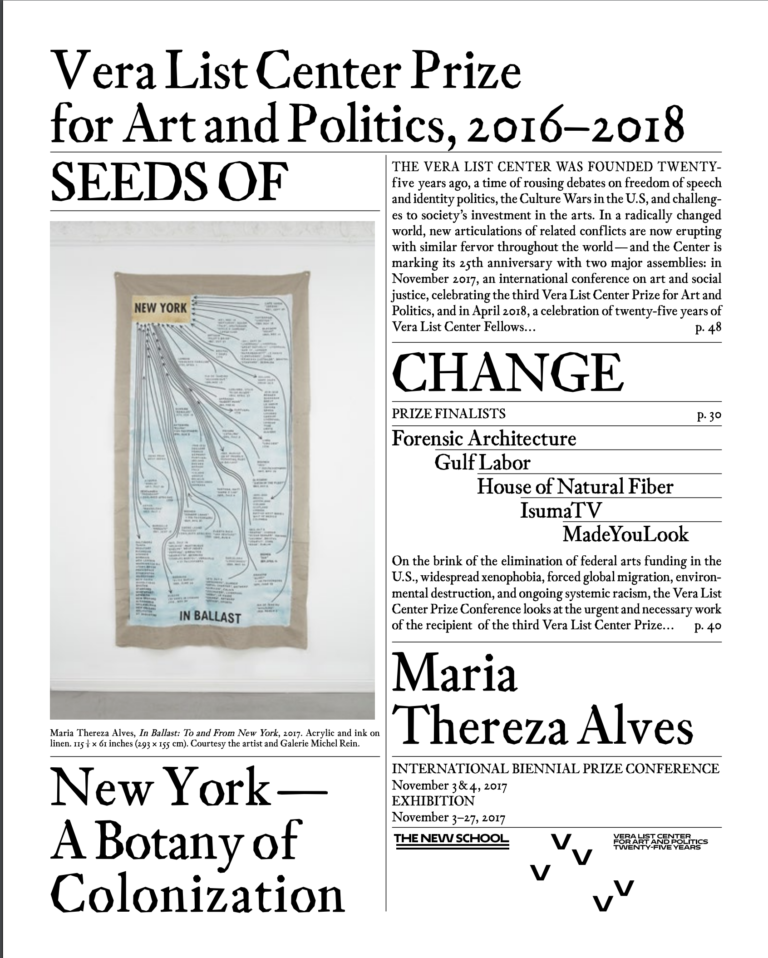
Catalogue
Vera List Center Prize for Art and Politics 2016–2018 Conference Companion
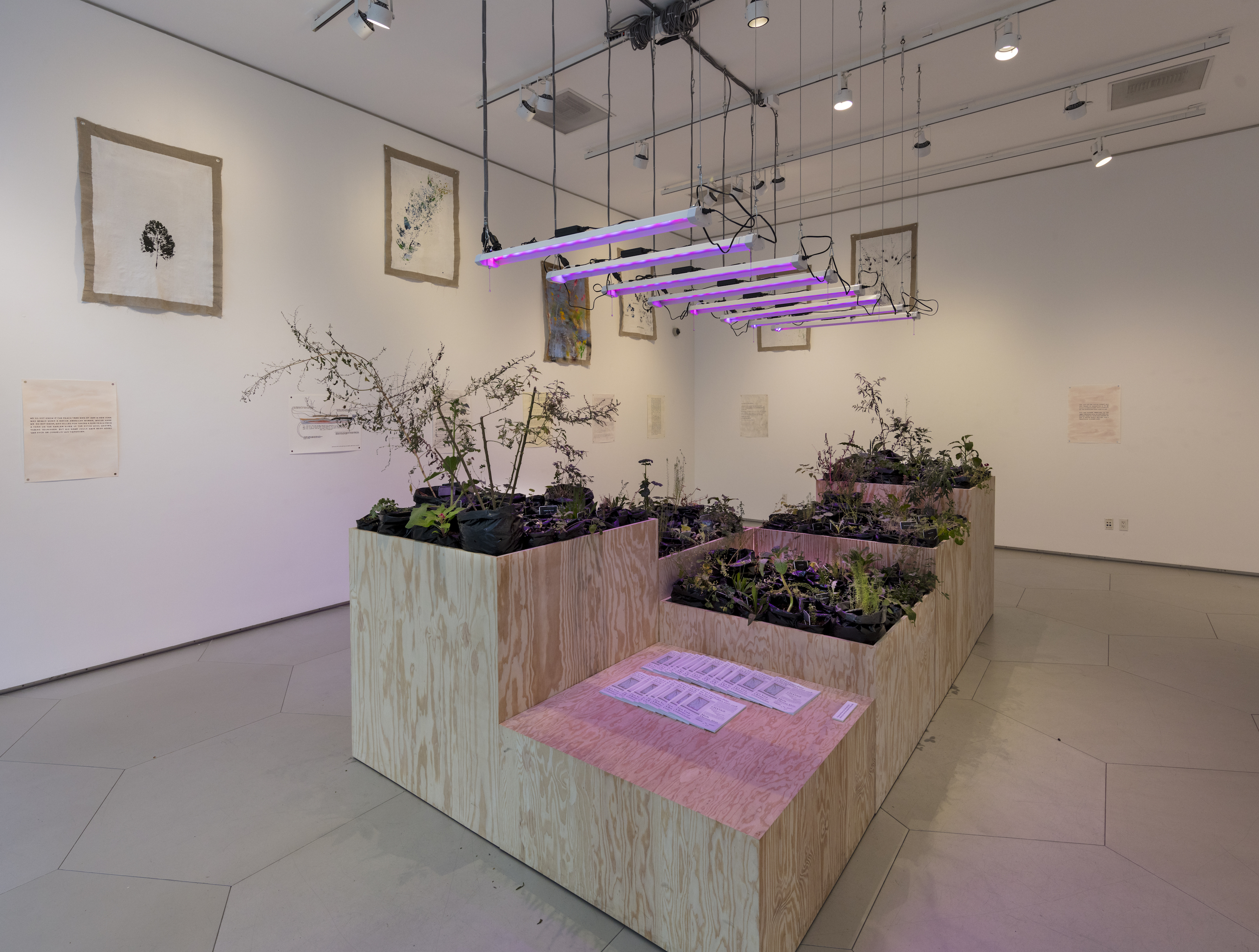
Essay
A Botany of Colonization
Maria Thereza Alves
